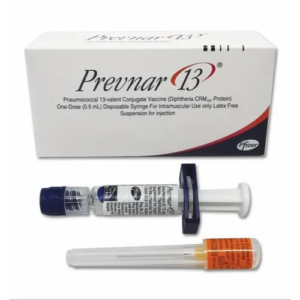PNEUMOCOCCAL POLYSACCHARIDE
PNEUMOCOCCAL POLYSACCHARIDE: Drug: Pneumococcal polysaccharide (Pneumovax 23)
Use: Pneumococcal polysaccharide is a vaccine used to protect against infections caused by the bacterium Streptococcus pneumoniae. It is primarily indicated for adults and children who are at an increased risk of developing severe pneumococcal infections, such as those with certain medical conditions (e.g., chronic heart, lung, or kidney disease), asplenia, or immunocompromised states.
Mechanism of Action: Pneumococcal polysaccharide vaccine contains purified polysaccharide antigens from 23 different strains of Streptococcus pneumoniae. These antigens stimulate the production of antibodies, which recognize and neutralize the bacteria, preventing infection.
Dose: The vaccine is administered as a single injection, usually into the muscle or under the skin. The recommended dose depends on the age and risk factors of the individual. For adults and children aged 2 years and older, a single 0.5 mL dose is typically administered.
Side Effects: Common side effects of pneumococcal polysaccharide vaccine include pain, redness or swelling at the injection site. Some individuals may experience mild systemic symptoms such as fever, muscle aches, or fatigue lasting for a day or two after vaccination. Serious side effects are very rare but can include severe allergic reactions (anaphylaxis) or Guillain-Barré syndrome. It is important to note that the benefits of vaccination far outweigh the potential risks.

